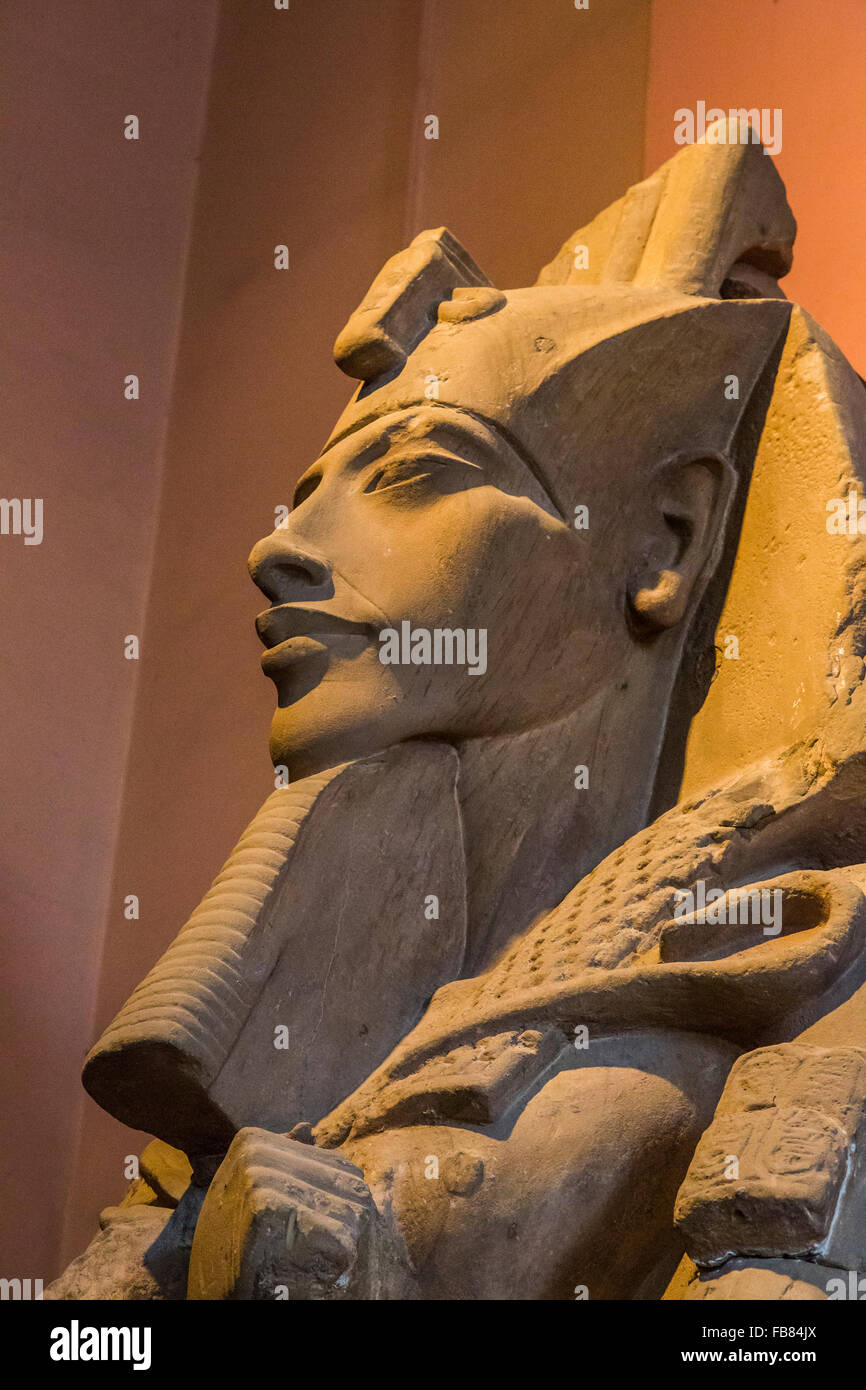statue of Akhenaten, The Egyptian Museum, Cairo, Egypt

Image details
Contributor:
B.O'Kane / Alamy Stock PhotoImage ID:
FB84JXFile size:
24.1 MB (1.4 MB Compressed download)Releases:
Model - no | Property - noDo I need a release?Dimensions:
2370 x 3555 px | 20.1 x 30.1 cm | 7.9 x 11.9 inches | 300dpiDate taken:
18 December 2015Location:
The Egyptian Museum, Cairo, EgyptMore information:
Akhenaten (/ˌækəˈnɑːtən/;[1] also spelled Echnaton, [7] Akhenaton, [8] Ikhnaton, [9] and Khuenaten;[10][11] meaning "Effective for Aten") known before the fifth year of his reign as Amenhotep IV (sometimes given its Greek form, Amenophis IV, and meaning Amun is Satisfied), was a pharaoh of the Eighteenth dynasty of Egypt who ruled for 17 years and died perhaps in 1336 BC or 1334 BC. He is especially noted for abandoning traditional Egyptian polytheism and introducing worship centered on the Aten, which is sometimes described as monotheistic or henotheistic. The Museum of Egyptian Antiquities, known commonly as the Egyptian Museum or Museum of Cairo, in Cairo, Egypt, is home to an extensive collection of ancient Egyptian antiquities. It has 120, 000 items, with a representative amount on display, the remainder in storerooms. It houses the world’s largest collection of Pharaonic antiquities. In 1892, the collections were moved to a former royal palace, in the Giza district of Cairo. They remained there until 1902 when they were moved, for the last time, to the current museum in Tahrir Square.